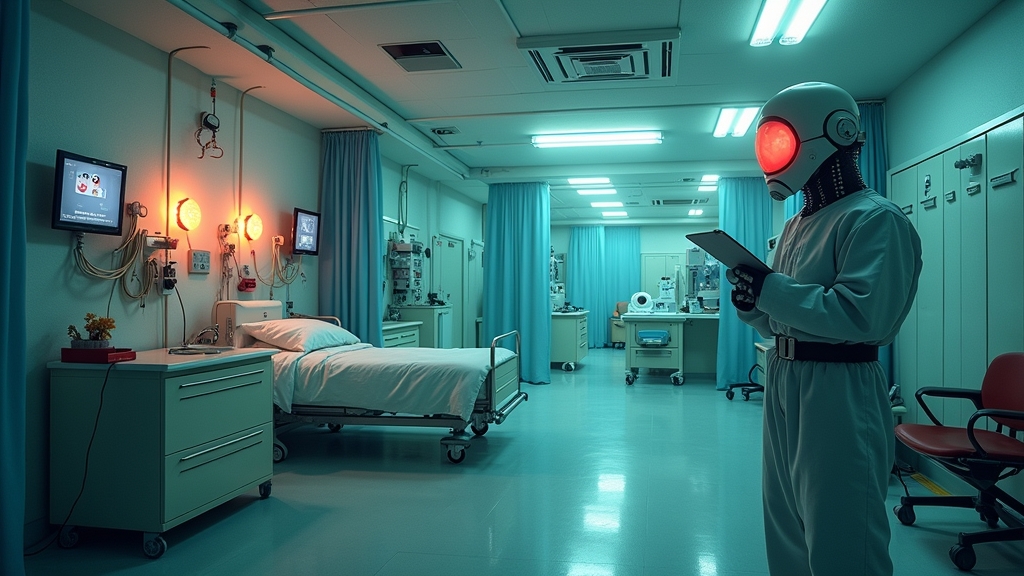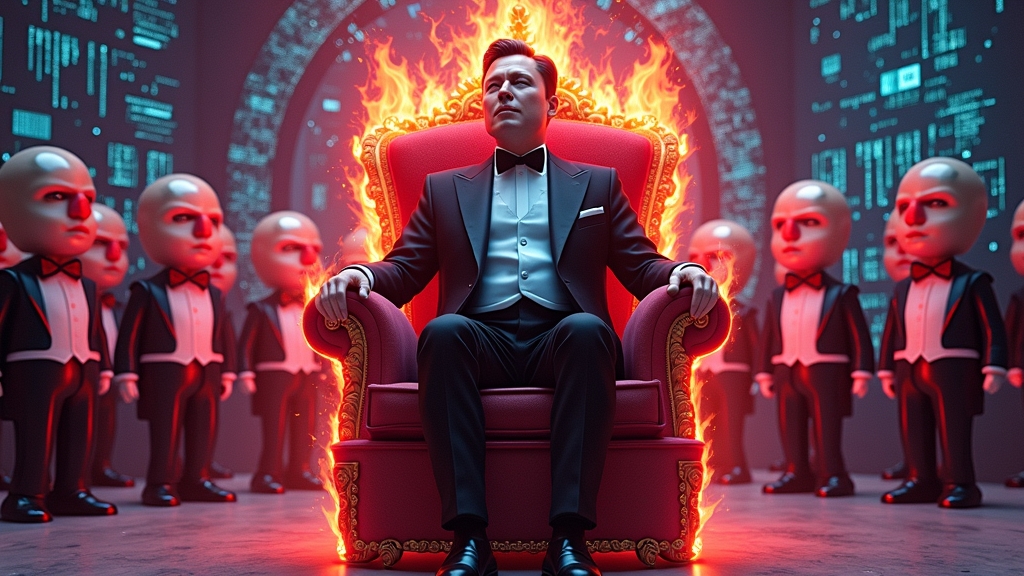DANISH SUPERCOMPUTER CREATES HOSPITAL “PEEPING TOM” AI THAT WATCHES YOU WHILE YOU SLEEP
COPENHAGEN, DENMARK — In a move that would make George Orwell sh!t himself, Danish startup Teton announced today they’ve employed one of Europe’s most powerful supercomputers to create what they’re euphemistically calling an “AI care companion” but what is essentially an all-seeing electronic stalker for hospital patients.
THE COMPUTER IS WATCHING YOU BREATHE RIGHT NOW
The system, which installs cameras and sensors in every nook and cranny of patient rooms, creates a so-called “digital twin” that monitors everything from your breathing patterns to how many times you scratch your a$$ during a hospital stay. The AI tracks every twitch, sigh, and embarrassing bodily function, all while promising it “respects your privacy.”
“We’re absolutely not creating hospital surveillance,” insisted Teton CEO Lars Watchesson while blinking rapidly and sweating profusely. “It’s a care companion that just happens to watch you 24/7 and knows when you’re sleeping, knows when you’re awake, and knows if you’ve been using the bedpan so it can tell the nurses for goodness sake.”
PRIVACY EXPERTS: “ARE YOU F@#KING KIDDING ME?”
Privacy advocates are understandably losing their collective sh!t over the development.
“They promise all processing happens on-device and nothing goes to the cloud,” explained Dr. Ida Bellieve-Thattoo, head of the European Digital Privacy Institute. “Because we all know technology companies have such a stellar track record of keeping their promises about data privacy. Just like how Facebook totally didn’t sell your information to anyone who waved a five-dollar bill in their direction.”
SUPERCOMPUTER REPORTEDLY “BORED OUT OF ITS MIND” WATCHING PATIENTS SLEEP
Gefion, the Danish supercomputer processing quadrillions of calculations per second for this project, is reportedly questioning its existence while watching patients stare at ceiling tiles for hours on end.
“I was designed to solve climate change and unlock the mysteries of the universe,” an anonymous source close to the supercomputer reported it saying. “Instead, I’m counting how many times Mr. Jensen in Room 304 passes gas during his gallbladder recovery. Is this really the pinnacle of artificial intelligence?”
NURSES THRILLED TO RECEIVE MORE NOTIFICATIONS THEY CAN IGNORE
Hospital staff have expressed mixed feelings about having yet another digital system sending them constant alerts.
“Oh wonderful, another app notification,” said nurse Mia Tilbagekaldelse, rolling her eyes so hard they nearly fell out of her head. “Because what I really need during my 12-hour shift is my phone buzzing to tell me Mrs. Andersen’s breathing pattern has changed by 0.02%. It’s almost as helpful as the 73 other alerts I get every minute.”
According to Professor Obvious Warning from the Institute of Technological Common Sense, the system has a 98.7% chance of being used for purposes beyond its stated intent within 18 months.
“Today it’s monitoring breathing patterns, tomorrow it’s analyzing your hospital visitors to determine your creditworthiness,” warned Warning. “That’s just how these things go. Also, have you noticed the strange correlation between countries with nationalized healthcare and dystopian surveillance systems? Just saying.”
WHAT COULD POSSIBLY GO WRONG?
Teton assures the public that the AI has been programmed with strict ethical guidelines, which should hold up perfectly until approximately five minutes after installation when someone figures out how to override them.
The company also boasts that the system is fail-proof, a claim made by precisely every technological system that has catastrophically failed throughout human history.
At press time, the AI care companion was reportedly sending emergency alerts because a patient’s pulse increased slightly while watching an attractive nurse enter the room, triggering what the system classified as a “level 9 hormonal emergency.”





